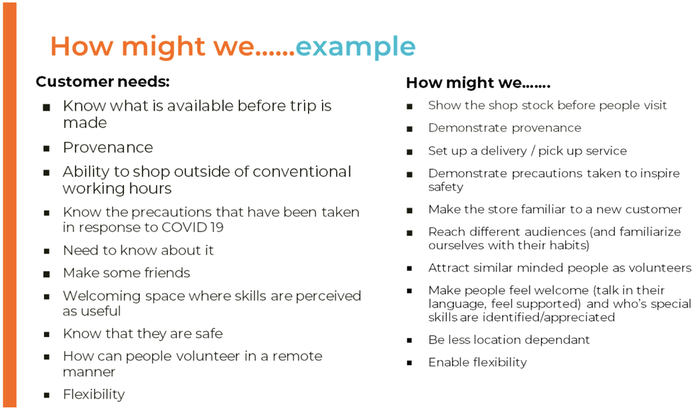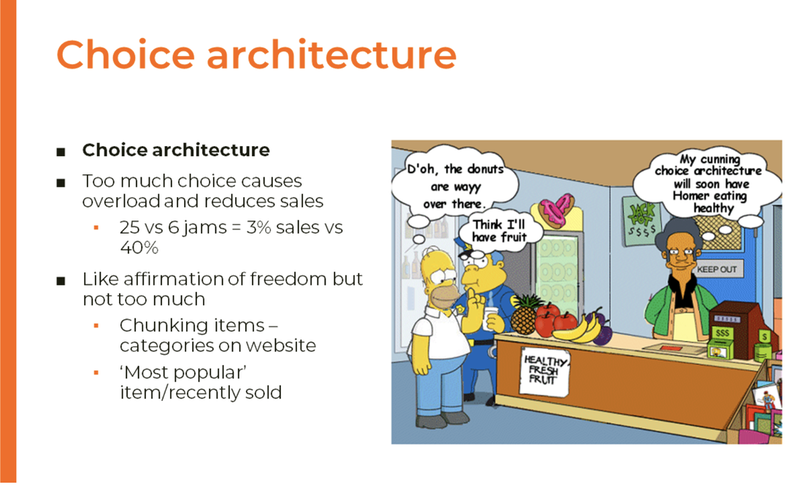
Devon County Council REUSE Sector
Learnings for ethical businesses from the Reuse sector
In May, 2020 The Devon Council Reuse Officer hired Head Sustainable Sidekick Livvy Drake to deliver workshops to the Reuse shops she worked with. The aim was to help them achieve more sales and reach a wider audience by understanding their existing and potential customers better.
The face-to-face workshop was initially delayed due to the first Covid-19 lockdown. Fortunately, we were able to move it online as a series of three workshops, to support the shops in their re-opening and understanding the new barriers and challenges their customers would be facing and how to overcome them.
Many ethical, sustainable or second-hand businesses focus entirely on their values and environmental impacts, where the passion of the founders lie. Of course, this is great if you have customers who are also very value-driven and will prioritise their values over other shopping needs, such as convenience. However, this limits the potential customer base significantly and keeps your business trapped in the echo-chamber.
Natalie (ReSTORE) said :

My Aha! Moments included understanding what motivates people and holds them back… and I’m going away with so many ideas of how to engage people better

Understanding customer needs and motivations
That’s why it’s important to spend time thinking more widely about your potential customers and what motivates them. Not everyone who shops with you will be motivated by your planet-friendly credentials, and by understanding their behaviour, you can reach more people and increase your sales, which was the goal of this project.

The first lockdown also meant that the reuse sector’s traditional customers had learnt new shopping habits (online shopping) or were shielding, so finding ways to reach them and new audiences was essential.
Livvy began by guiding the teams to really get into the mindset and lives of their customers, so they could identify their pain points and needs. She showed them how to create personas of their customers, journey map their days and imagine what they think, see, hear, say, feel and do. This gave everyone a deeper understanding of who their customers are, how they behave, and what motivates them to shop in the way they do – without focusing too much on the environmental credentials or letting their passion overshadow their understanding.
Next, Livvy encouraged the teams to look at the opportunities around reopening and how they might meet their customer’s needs, based on what they’d learnt so far.

Finally in week three they explored how they could effectively communicate their improvements or initiatives to their customers, with a focus on the benefits they would care most about.
This created a number of “a-ha!” moments for the ReStore, who repair and upcycle furniture. They realised they could activate the human cognitive bias for ‘effort’ – (we will pay more if we know the effort that has gone into something) by giving a fuller description of the items they sell:

You mentioned about making sure people know why you are different – what the story is, why they do what they do, charitable aims and the people who make these brilliant items. This helps people see why you would pay £90 for a chair that is bespoke, not that you are just buying something old and worn.
Catherine Causley

Livvy helped them to use the principles of choice architecture (where something is placed affects what we choose) and the idea of friction and pain points to review the layout of their shop for re-opening, enabling customers to find and get to things quicker – breaking the stereotype that second-hand shops are messy and products are hard to find!

I think having an understanding of how to make it easy and avoid friction was key for me. Whether that be the online payment system or varying opening hours or certain days for collection for example. John Lewis doesn’t impose those types of challenges.
Catherine Causley

Understanding that they needed to overcome their customers’ uncertainty was also essential, so by using their fictitious personas they could identify concerns and ensure they communicated how they were combating these in advance.
John ReSTORE said

It particularly helped me understand how we convey our message to our customers


Since the workshops, the Restore have certainly stepped up their Facebook posts. They post far more frequently and the quality and interaction of the posts have improved. They spent quite a lot of time improving the appearance of their shop and it has really paid off – its looks much better
Catherine Causley


The benefit of applying behaviour change principles
The workshop used a combination of behaviour change principles and design thinking tools for the teams to really understand their customers, potential customers and business limitations better. As a result, the businesses involved are able to reach a wider audience online and offline, which will lead to increased sales.
Livvy hosted series of these workshops with a focus on ethical businesses in collaboration with #EthicalHour – the online membership community for Big Why business founders who put people and planet first!


